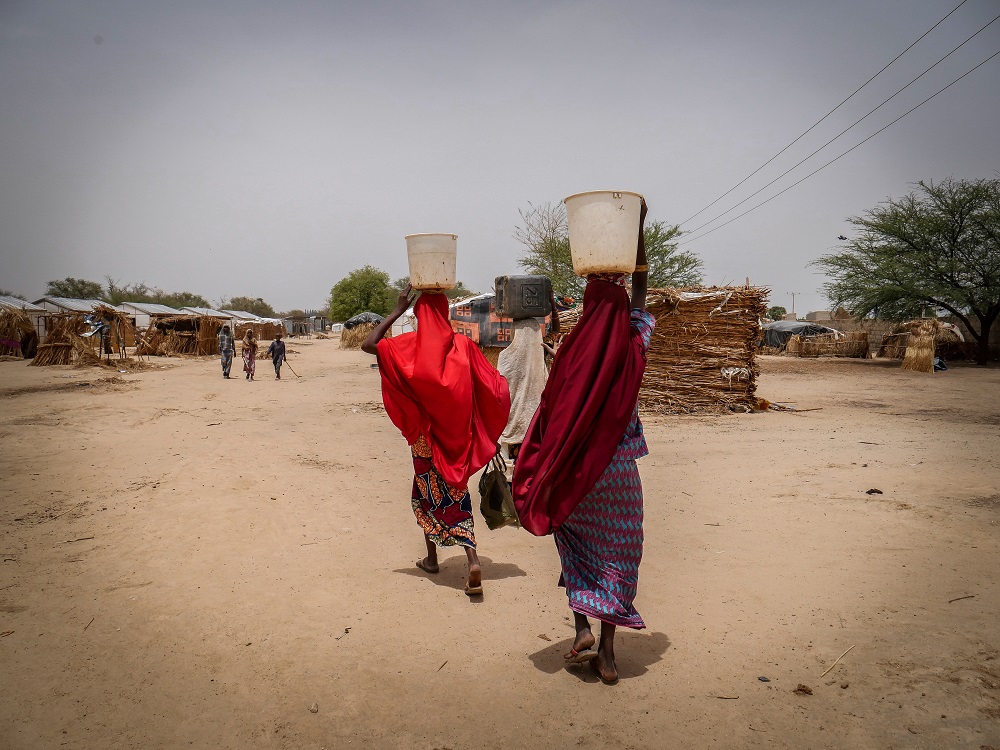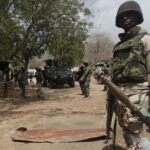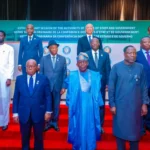The United Nations Development Programme (UNDP) has said that there must be a new approach to ending the crisis in the Lake Chad region as the over 19 million people living in the region cannot be left to their fate or that of criminal manipulation.
The Assistant Secretary General and UNDP Regional Director, Regional Bureau for Africa, Mrs. Ahunna Eziakonw, said this Wednesday in Niamey, Niger Republic at the openings of the three-day second meeting of the Lake Chad Basin Governors’ Forum (LCBGF).
The conference organised by the Lake Chad Basin Commission (LCBC), with the support of the African Union (AU), the UNDP, Crisis Management Initiative (CMI) and German Government was the outcome of the inaugural meeting of the LCBGF in Borno State in 2018, for the Regional Stabilization Strategy (RSS) for recovery and resilience in areas affected by the Boko Haram insurgency in the region.
According to her, the Boko Haram insurgency in North East Nigeria and neighbouring countries of Cameroon, Chad and Niger has resulted in displacements, destruction of basic infrastructure, and environmental degradation on the Lake, severely impacting communities across the region.
“The conflicts have eroded, and in some cases ruptured, the bonds and relationships within groups and communities, with the poor bearing the greatest brunt. Extremists target public spaces, forcing people to make difficult choices between risking death by going to work to earn a meagre living or risking the very survival of their families. Nowhere is this more evident than in the Lake Chad Basin with over 2.8 million people displaced across four countries.
“The Lake Chad Basin countries have always been an important focus of the UNDP. The eight Provinces/Regions of the Basin are home to 19 million people, sharing borders, cultures, languages, currencies. Still, and perhaps more than ever, the Lake Chad Basin countries, with their specific and different contexts, challenge us to find the right solutions to issues of inequalities, deprivation and poverty,” Eziakonw said.
She said the second forum was a continuation of their collective efforts to address a three-tiered crisis of structural and persistent development deficit across parts of the region; a breakdown of the social contract that has fostered localized violent extremist insurgency; and an unfolding environmental catastrophe.
She said that while affected by the same crisis, the situation differs among countries in the Lake Chad Basin and that the UNDP offer has to be harmonized yet differentiated, as national responses must be complemented by cross-border interventions and regional collaboration.
She said that as part of stabilization, it is of utmost importance that the people themselves, and local authorities participate actively in this transformation, to regain control of their environment.
Also, the Prime Minister of Niger Republic, Mr. Brigi Rafini, while formally declaring open the summit, commended President Muhammadu Buhari for providing strategic leadership and commitment to the stabilization of the Lake Chad region.
According to him, it was the President Buhari Plan launched in 2016 that has now become a global strategy in addressing the menace of insurgency and restore livelihood of the victims.
He also commended Nigerian Government for moving the command and control centre to Borno State leading to the creation of Operation Lafiya Dole that has largely contributed to the successes recorded in operations against the Boko Haram insurgency.
On his part, the Executive Secretary LCBC and Head of Mission Multinational Joint Task Force (MNJTF), Ambassador Mamman Nunu, said that unless the four countries directly affected by the Boko Haram insurgency collaborate, the move to end insecurity in the region would be fruitless.
According to him, though the LCBC remains focused on providing the needed support to the affected nations in their battle against regional insecurity, the leaders of these nations must collaborate through a common approach.
He urged the leaders to buy into the RSS which he said has nine pillars and 40 strategic objectives aimed at bringing the crisis in the region to a quick and lasting end.
“As the population of displaced persons increase with each attack on villages and settlements in the affected countries, each of the four affected countries devised its own strategy on how to cope with the humanitarian challenges. It soon became clear that better results would be achieved if the various national approaches were harmonized into one regional strategy that would be adopted and implemented by each,” Nuhu said.
He said the LCBC, with the support of the AU and other partners, mobilized national experts and relevant UN agencies to produce a draft strategy.
He said, “The first conference which took place in N’Djamena, Chad in November 2017 produced a framework. Several consultative meetings were held while experts visited each country to collect first-hand information about the humanitarian crisis and the strategies for addressing the challenges.”
Borno State Governor, Prof. Babagana Zulum, while handing over the headship of the commission to his Niger Republic counterpart, assured of the state’s and Nigeria Government to resolving the Lake Chad crisis and bring development to the region.
The eight governors in the four countries affected and participating at the summit are Governor of Extreme North, Cameroon, Midjiyawa Bakari; Governor of North Region, Cameroon, Abate Edi; Governor of Diffa, Niger, Mohamed Mouddour; Deputy Governor of Adamawa, Nigeria, Crowther Seth; Governor of Borno, Nigeria, Babagana Zulum; Governor of Yobe, Nigeria, Mai Mala Buni; Governor of Hadjer Lamis, Chad, Ali Haroun, and the Governor of Lac Region, Chad, Nouky Charfadine.
The inaugural meeting in a joint communique by the governors expressed their wish to play a central role in regional stabilization and advance developmental causes.
The summit is having over 500 participants and delegates from national institutions and government, UN agencies, continental and sub-regional bodies like the African Union, armed forces, MNJTF, ECOWAS, ECCAS, civil society groups and private sector from the Lake Chad Basin region.

 Join Daily Trust WhatsApp Community For Quick Access To News and Happenings Around You.
Join Daily Trust WhatsApp Community For Quick Access To News and Happenings Around You.

